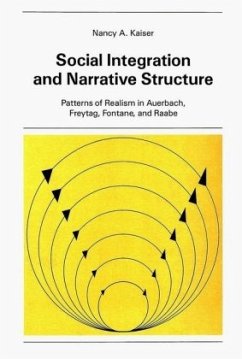Defining realism as a category of literary communication, this study delineates three distinct patterns of reader experience within 19th-century German Realism. In considering the interaction of text and reader as constructing the world which a "realistic" novel is often said to reflect or describe, the author coordinates an analysis of the social systems constituted within the texts with a consideration of the narrative structure. The first pattern connects village tales by Auerbach with Freytag's Soll und Haben. A second pattern of reader experience, demonstrated in three novels by Fontane, exposes and manipulates the mechanisms of social integration. The final pattern, two works from Raabe's Braunschweig Trilogy, undermines the middle-class reality it evokes.
"...differenziert argumentierende und historische wie theoretisch gut abgesicherte Studie." (Germanistik) "... diese Arbeit ... hat viel Wertvolles zu bieten." (William Webster, Jahrbuch der Raabe-Gesellschaft) "Kaiser's study offers solid proof that today's critics can indeed elucidate the links between yesterday's works and realities by becoming more aware of the critical perspective represented or applied in each work. She deserves respect for her integrative effort - a constructive contribution to our understanding of nineteenth-century German literature." (Louis F. Helbig, The German Quarterly)

